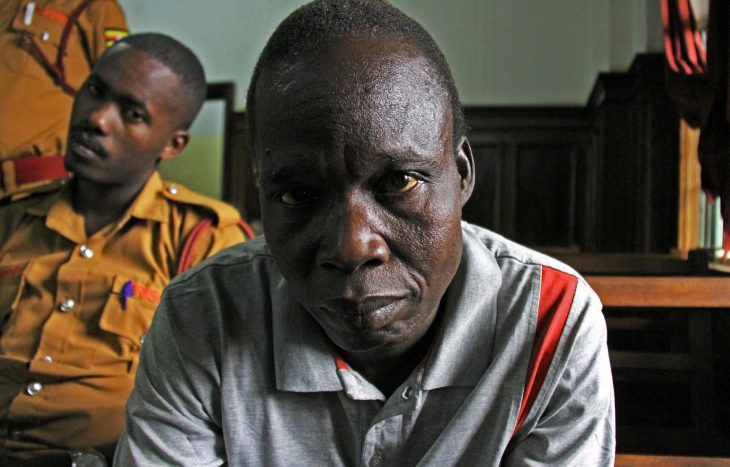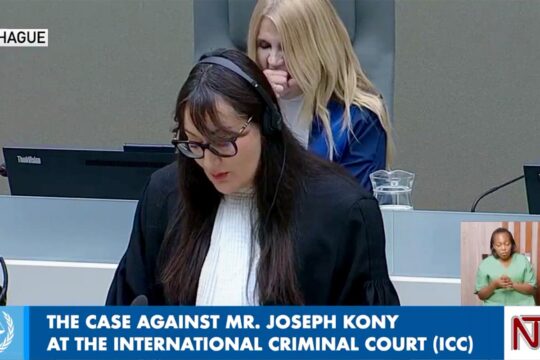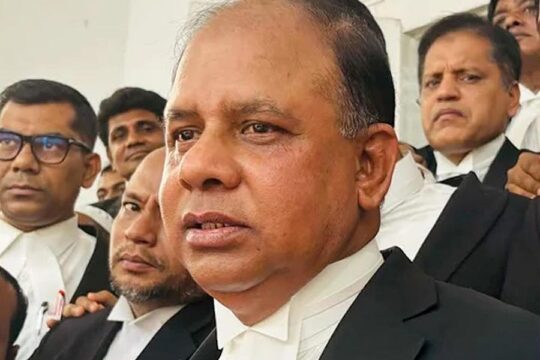Thomas Kwoyelo’s story is like that of many other combatants in the rebel Lord’s Resistance Army (LRA) -- that of a victim turned perpetrator. Born in Pabo in northern Uganda, Kwoyelo was kidnapped on his way to school in 1987 by an LRA unit that had hardly any training.
The LRA, led by self-proclaimed religious leader Joseph Kony, said it wanted to free Uganda from “corruption, sins and immoral thoughts”. It claimed to be fighting for a system based on the Ten Commandments. But its hallmark was mainly horrendous crimes. “Throughout its history, the LRA has been responsible for numerous atrocities, including massacres, summary executions, torture, rape, pillage, and forced labour,” according to Human Rights Watch. “The LRA’s brutality against children has been particularly horrific. The group has replenished its ranks by abducting children, forcibly training and using children in combat operations, using girls as sex slaves, and compelling compliance through threats, violence, and mind control.”
It was in this environment that Thomas Kwoyelo grew up and climbed the ranks of the rebel LRA army. He was part of its operations in Uganda and neighbouring countries until 2009 when, already a “colonel”, he was injured and captured in LRA clashes with the Ugandan army in Ukwa, Democratic Republic of Congo. Kwoyelo was taken to Kampala for medical treatment and put under arrest.
Selective amnesty
After being charged with crimes committed in Uganda, Kwoyelo filed a request for amnesty in 2010 under a law passed in 2000 to encourage rebels giving up the armed struggle. But the head of criminal prosecutions and the amnesty commission chose to ignore Kwoyelo’s amnesty request. That led to the opening on July 11, 2011 of his trial before the International Crimes Division (ICD), a specialized chamber created in 2008 within the Ugandan Supreme Court. But two months later, the Constitutional Court ordered an end to the trial on grounds that the head of criminal prosecutions and the amnesty commission had not provided any explanations. At the time more than 10,000 people linked to the LRA, including people above Kwoyelo, had been granted amnesty. His defence team, along with part of the Ugandan public, think this is selective amnesty, and therefore unfair.
On April 8, 2015, the Supreme Court put a final end to Kwoyelo’s hopes of amnesty, saying he could be tried for certain specific crimes.
Victims represented
And so procedures could resume before the International Crimes Division. In 2017, preliminary hearings were postponed several times because of delays in filing evidence, a judges’ strike and a lack of financial resources. On August 30 this year the ICD confirmed 93 charges against Thomas Kwoyelo, including murder, rape, torture, desecration, destruction of harvests and property, recruitment of child soldiers and forced slavery. These alleged crimes were all perpetrated in attacks in 1993 to 2005 in his native district of Amuru, in northern Uganda.
This case of war crimes and crimes against humanity is a first for Ugandan justice, as stressed by Romain Ravet, director for Lawyers without Borders (ASF) in Kampala. “The challenge for the ICD is to draw up in this trial principles that are new for it,” he told JusticeInfo.
The trial will be taking place at the same time as that of Dominic Ongwen, another former LRA commander, before the International Criminal Court (ICC) in The Hague. The two trials will certainly be compared. “The biggest challenge is to respect the principle of victims’ participation at all stages of the procedures, as approved by the judge in the preliminary phase in 2016,” says Ravet, whose organization is supporting civil parties in the Kwoyelo trial.
Ten years in custody
At a status conference in Gulu on September 24 Jane Kiggundu, one of the three judges in charge of this case, promised that the trial “will be conducted with the full respect of the rights of the accused and due regards for the protection of victims, witnesses, children and women”. But some NGOs point out that the accused has been waiting ten years for his trial. “While it is important to apply international standards and best practices gleaned from other jurisdictions, this should not be done at the expense of an accused person’s right to an expeditious trial and victims’ right to a timely remedy,” said the International Center for Transitional Justice in a July 25 statement. “The judiciary should take all necessary measures to prevent any further delays in the criminal proceedings against Kwoyelo.”
The ICD, which has not pronounced any judgment in its ten years of existence, is the target of much criticism especially in northern Uganda, where there is still resentment against the government army. Some in this part of the country think the Kwoyelo case is evidence of “biased justice”, since independent sources have also documented crimes committed by government forces during the conflict. Many people would therefore prefer that conflicts be resolved through traditional mechanisms, so as to promote reconciliation.







